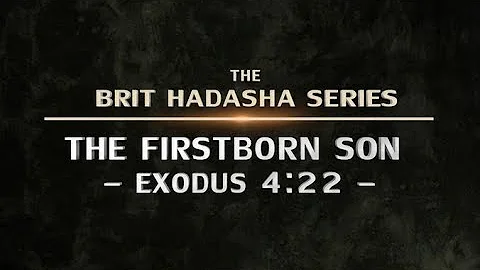Unveiling the Depths of Sylvia Plath's The Colossus
Table of Contents
- Introduction
- The Colossus: An Analysis
- The Colossus of Rhodes
- The Fallen Idol
- The Oracle and Faith-on
- The Human Element in "The Colossus"
- Loss and Memory
- Fragments of a Father
- Contemplation of Time
- Conclusion
The Colossus: An Ode to the Fallen Idol
In the realm of literature, there exists a poem that reverberates with the profound essence of loss and the fragmented nature of memory. Sylvia Plath's "The Colossus" stands as a testament to the complexities of human emotions and the struggle to piece together the remnants of a broken past. Through this discussion, we dive deep into the layers of meaning within the poem, exploring the significance of the Colossus of Rhodes, the representation of a fallen idol, and the interplay between the speaker's identity as both an oracle of the dead and a mortal yearning for their father's presence.
The Colossus of Rhodes
To truly grasp the essence of "The Colossus," we must turn our attention to the history behind the colossal statue of Helios, the Greek sun god, known as the Colossus of Rhodes. Standing at an impressive height of 108 feet, this magnificent statue was erected to commemorate the thwarting of a siege attempt. However, its reign as a symbol of power and victory was short-lived, as it was destroyed by an earthquake in 226 BC. The remnants of this fallen idol serve as a metaphorical backdrop for Plath's exploration of a shattered father figure and the subsequent impact on the speaker's perception of the world.
The Fallen Idol
Within the lines of "The Colossus," we encounter a speaker plagued by the fragmented memories of their father. This loss, experienced at a tender age, has left the speaker yearning to piece together the puzzle of their father's being. The shattered idol serves as a symbol of this broken connection—a once majestic figure reduced to disjointed pieces that elude proper reassembly. The speaker laments, "I shall never get you put back together, entirely pieced, glued, and properly jointed," expressing the impossibility of restoring the shattered fragments of their father's presence.
The Oracle and Faith-on
Embedded within "The Colossus" is a dichotomy between the speaker's identity as both the oracle of Delphi and Phaethon, the mortal son of Helios. The oracle, a mouthpiece of the dead or the divine, embodies wisdom and prophetic insight. Meanwhile, Phaethon represents the mortal longing for connection with a distant and larger-than-life father figure. This merging of identities reflects the speaker's ongoing struggle to reconcile their own mortal existence with the weight of their father's memory. As they confess, "Thirty years now I have labored to dredge that silt from your throat, I am none the wiser"—revealing the eternal quest for understanding and the complexity of navigating one's own mortality within the shadow of a towering deity.
The Human Element in "The Colossus"
At its heart, "The Colossus" speaks to the universal experience of loss and the fleeting nature of memory. Plath's expert navigation of these themes invites readers to reflect on their own relationships with departed loved ones. The fragmented memories and elusive connections explored in the poem resonate deeply with those who have grappled with the passage of time and the erosion of cherished recollections.
Loss and Memory
The poem prompts us to consider the fragility of memory and the emotional weight of losing someone significant. Plath's portrayal of struggling to piece together fragments of memory reminds us of the vulnerability inherent in human existence. The yearning to remember and fully comprehend the past is a sentiment that resonates with readers from all walks of life.
Fragments of a Father
In "The Colossus," the speaker recounts nights spent in contemplation, squatting in the cornucopia of their father's left ear. These fragments of memory illuminate the magnitude of the loss experienced and the desperate attempt to hold onto even the smallest reminiscences. The speaker's longing is palpable, for they confess, "It would take more than a lightning stroke to create such a ruin." The resolute determination to mend the fractures in their understanding of their father propels the narrative forward.
Contemplation of Time
Embedded within the metaphorical fragments of memory lies a contemplation of time. Plath's speaker reflects on the brevity of the years and the daunting realization that memories are fading with each passing day. The finite nature of life becomes palpable as the speaker confronts the reality that their father's presence is gradually slipping away. This contemplation adds a sense of urgency to the poem and serves as a poignant reminder to cherish the time we have with our loved ones before they become mere fragments of memory.
Conclusion
In "The Colossus," Sylvia Plath masterfully weaves together themes of loss, memory, and the human struggle to preserve the fragments of cherished connections. Through her exploration of the fallen idol and the fragmented reminiscences of a father figure, Plath invites readers to reflect on their own experiences with loss and the erosion of memory. This poem serves as a poignant reminder of the finite nature of existence and the importance of cherishing the fragments we have before they, too, fade into the annals of time.
📌 Highlights:
- "The Colossus" explores the poignant themes of loss and fragmented memory.
- The Colossus of Rhodes serves as a metaphorical backdrop for the shattered father figure.
- The speaker embodies both the oracle and the mortal yearning for their father's presence.
- Plath prompts readers to reflect on the vulnerability of memory and the fleeting nature of connections with departed loved ones.
- Contemplation of time adds urgency and poignancy to the poem.
📚 Resources:
FAQ
Q: What is the significance of the Colossus of Rhodes in "The Colossus"?\
A: The Colossus of Rhodes serves as a metaphor for the shattered father figure and the broken connection explored in the poem. It symbolizes the fragmented nature of memory and the struggle to piece together the remnants of a lost loved one.
Q: How does "The Colossus" explore the themes of loss and memory?\
A: "The Colossus" delves deep into the universal experience of loss and the fleeting nature of memory. Through the speaker's lamentations and attempts to dredge up fragmented memories, Sylvia Plath captures the fragility of memory and the emotional weight of losing someone significant.
Q: What does the speaker's contemplation of time signify in "The Colossus"?\
A: The speaker's contemplation of time highlights the brevity of life and the urgency to preserve memories before they erode further. It serves as a poignant reminder to cherish the fragments of cherished connections while they still exist.
Q: Can "The Colossus" be interpreted as a biographical reflection of Sylvia Plath's relationship with her father?\
A: While it is plausible to interpret "The Colossus" as a reflection of Sylvia Plath's own experience, the poem's depth and universal themes transcend any one specific relationship. It invites readers to reflect on their own experiences with loss and memory, making it relatable to a broader audience.







